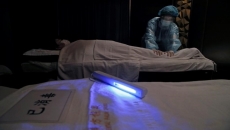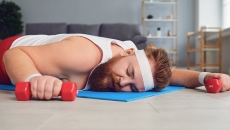Sleep is a fundamental aspect of our lives. It is a natural process that rejuvenates our bodies and minds, allowing us to function optimally during our waking hours. However, not all sleep is the same. In fact, sleep consists of different stages that play a crucial role in our overall well-being. Understanding these stages can provide valuable insights into the quality of our sleep and help us take steps to improve it. Priyanka Salot, Co-founder of The Sleep Company has explored the four stages of sleep and what you should know about them.
Light Sleep
The first stage of sleep is characterised by a transitional state between wakefulness and sleep. During this stage, you are easily awakened and may experience sudden muscle contractions or a feeling of falling. Your brain produces alpha and theta waves, which are slower in frequency compared to the waves generated when you are fully awake. Stage 1 typically lasts for only a few minutes and accounts for approximately 5 per cent of your total sleep time.
Deeper Sleep
Stage 2 sleep is a deeper stage of sleep than Stage 1. It is characterised by the presence of sleep spindles and K-complexes, which are brainwave patterns that help protect sleepers from being easily awakened by external stimuli. During this stage, your body temperature decreases, your heart rate slows down, and your breathing becomes more regular. Stage 2 sleep is essential for memory consolidation, learning, and overall cognitive function. It accounts for 45 per cent of our sleep time.
Non-Rapid Eye Movement Sleep
Stage 3 is also referred to as slow-wave sleep. It is characterised by the presence of slow delta waves in the brain, which are associated with the deepest level of sleep. During this stage, your body repairs and regenerates tissues, strengthens the immune system, and stimulates growth and development. Deep sleep is vital for physical restoration and accounts for approximately 25 per cent of your total sleep time.
Rapid Eye Movement Sleep
Rapid Eye Movement (REM) sleep is the final stage of the sleep cycle and is associated with vivid dreaming. It is characterised by rapid eye movements, increased brain activity, and temporary paralysis of the muscles. REM sleep plays a crucial role in cognitive processes, memory consolidation, and emotional regulation. It is also important for learning and creativity. REM sleep occurs in cycles throughout the night and typically accounts for 25% of your total sleep time.
So, why is it important for you to know about the different stages of sleep?
Sleep Quality: Understanding the stages of sleep can help you gauge the quality of your sleep. Use a sleep tracking device or app that monitors your sleep patterns and provides detailed information on sleep duration, sleep stages, and potential disruptions. There are many smartwatches and fitness trackers that use a combination of heart rate monitoring and actigraphy to track and measure sleep. By tracking how much time you spend in each stage, you can assess if you are getting enough deep sleep and REM sleep, which is critical for overall well-being.
Health and Well-being: Adequate sleep is essential for maintaining good physical and mental health. Deep sleep promotes physical restoration, while REM sleep supports cognitive function and emotional balance. Knowing the stages of sleep can help you identify any issues or imbalances in your sleep patterns that may be affecting your health.
Sleep Disorders: Awareness of the different stages of sleep can aid in the diagnosis and management of sleep disorders. Conditions like insomnia, sleep apnoea, and narcolepsy often disrupt the normal sleep cycle, affecting the distribution of sleep stages. Recognising these disruptions can prompt you to seek appropriate medical help.
Optimal Performance: Quality sleep directly impacts your daily performance and productivity. Understanding the stages of sleep can assist you in optimising your sleep routine and making necessary adjustments to ensure you wake up feeling refreshed and energised.
The following are some tips to help you achieve a peaceful sleeping experience:
Create a regular sleep routine: Aim to maintain a consistent bedtime and wake-up time each day, including weekends, in order to regulate your body's internal clock.
Create a sleep-friendly environment: Ensure your bedroom is quiet, dark, and cool, promoting a comfortable and conducive sleep environment.
Practice a relaxing bedtime routine: Engage in relaxing activities before bed, such as reading, taking a warm bath, or practising meditation, to signal your body that it's time to wind down.
Limit exposure to electronic devices: The blue light emitted by smartphones, tablets, and computers can disrupt your sleep patterns. To promote good sleep, refrain from using electronic devices for a minimum of one hour before going to bed.
Invest in a good mattress: A supportive and comfortable mattress is crucial for ensuring proper spinal alignment and minimising sleep disturbances.






